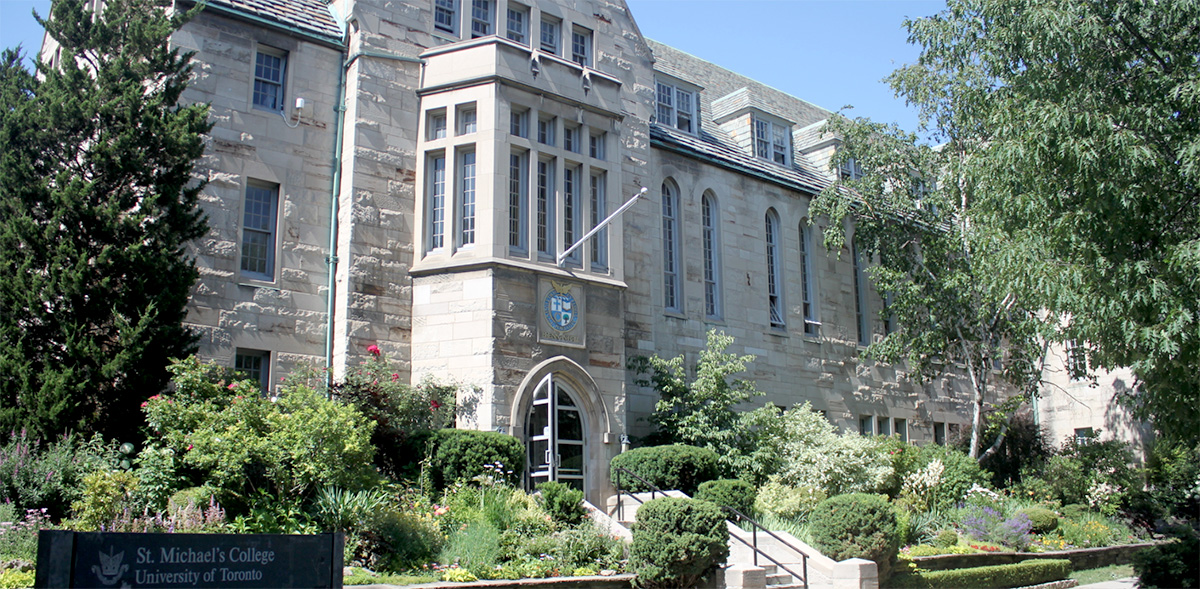As Fall classes get underway, Interim Principal Mark McGowan reflects on the rich culture of research and education that characterizes St. Michael’s in this story from the Spring 2021 President’s Report.

For Interim Principal Mark McGowan, the purpose of a university is clear: to help students—and the world—pursue the important questions. “The research toolkit that is part of the humanities teaches you to seek out data and weigh evidence in the pursuit of truth,” McGowan says. “These skills are portable and can go with you throughout your life, whether you are presenting at a school board meeting or at the board room table.”
For St. Michael’s, responding to life’s big questions means a continued focus on opportunities for students and faculty to study and conduct research, attend major conferences, share their results, and engage with the broader academic community.
“Faculty research and student research energize each other,” McGowan says, noting that events such as the recent research colloquium for St. Mike’s students on “Citizenship, Community, and Belonging”, as well as a university-wide colloquium on “The Role of the Catholic University in the 21st Century”, are indicative of the ways in which this engagement spills out of the classroom and into the broader life of the university.
“It is vitally important to continue to build a research culture on campus, engaging faculty in meaningful, innovative work while also encouraging students,” he says. “This is not just in-the-moment work but efforts that have long-term payoffs.
“There are many ways and resources to help answer the big questions,” he continues, citing for example important grants that have been awarded to support both faculty and student research and to fund attendance at major conferences, enhance classroom space for new approaches to teaching and ways for students to connect and, of course, the ongoing attention to the John M. Kelly Library, one of the University of Toronto’s finest.
Efforts continue to build up the four undergraduate programs St. Michael’s sponsors—Book and Media Studies, Mediaeval Studies, Christianity and Culture, and Celtic Studies as well as the three first-year seminars—the Gilson Seminar in Faith and Ideas, the McLuhan Seminar in Creativity and Technology, and the Boyle Seminar in Scripts and Stories—which weave themselves naturally into St. Mike’s undergrad programs.
McGowan notes, for example, that an increasing number of cross-appointments for St. Michael’s faculty members to the University of Toronto allows them both the joys of teaching in an intimate college classroom while also the exposure of working at U of T, the top-ranked Canadian university in the SQ World University Rankings 2021, with U of T ranking 25th in the world.
The resulting benefit, he notes, isn’t just for professors. Dr. Alison More’s cross-appointment to U of T’s Centre for Medieval Studies, for example, means she can easily reach out to colleagues at the Faculty of Music, the Department of Art History, or any of the divisions that might have crossover with her own work, expanding not only her scope but that of her students at St. Mike’s.
As the university looks to the future, McGowan notes there will be an increased emphasis on hiring with diversity and inclusivity in mind, building a team reflective of the student body.
This comes as the university considers and adopts ways for faculty and staff to work even more closely together.
“I don’t think in terms of divisions but see ourselves as one unit,” McGowan says, citing professors teaching at both the undergraduate level as well as in the Faculty of Theology.
“We are blessed with a strong teaching faculty, and a collection of really good people working throughout the university. This is just the beginning for us.”
From University of St. Michael’s College President’s Report, Spring 2021

